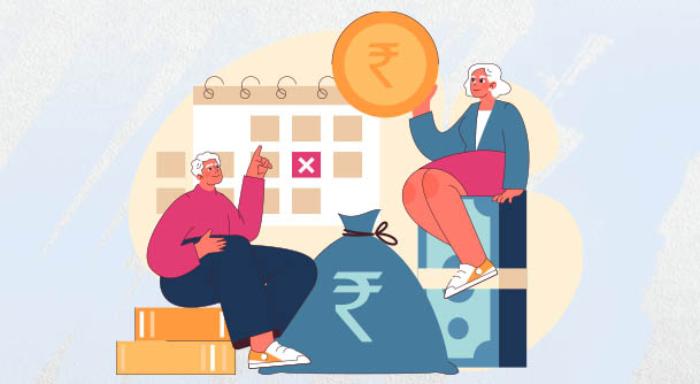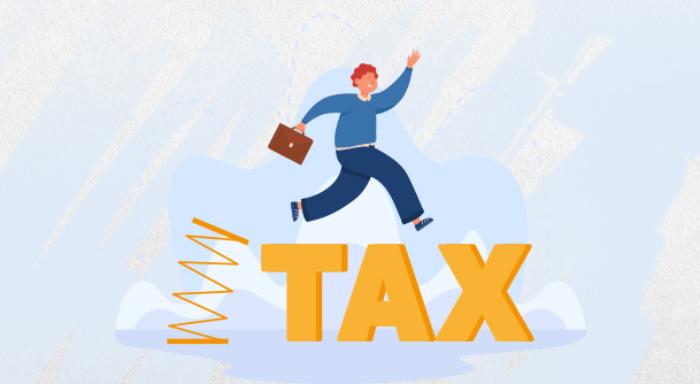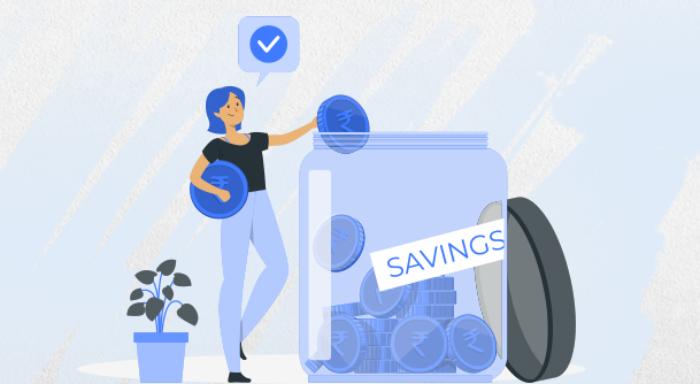What is Advance Tax? Know All About Advance Tax Payments
Blog Title
5918 |
1/1/24 10:03 AM |
Advance tax, as the name suggests, is when you pay your income tax before the due date. Some of you may prefer to pay tax every month, rather than paying a lumpsum amount at the end of the year. When you do this, it is called advance tax, which is also known as “pay as you earn” tax.
Advance tax collections in India in 2023 is estimated to have grown by about 21%, as per the data released by the Central Board of Direct Taxes. Why are more people opting for advance tax? Read on learn more about advance tax and its benefits.
Due Dates of Advance Tax Instalments
Are you a salaried person? If so, you need to clear at least 15% of your tax liability latest by June 15, 45% by September 15, 75% by December 15, and 100% by March 15.
On the other hand, if you’re a business owner or are self-employed, you don’t need to clear anything by June. Instead, you need to clear at least 30% of your tax liability by September 15, 60% by December 15, and 100% by March 15.
Furthermore, Companies are required to make tax advance payments at specific intervals throughout the fiscal year. The due dates for these tax instalments are as follows: 15% of the total tax payable is due on or before the 15th of June, 45% on or before the 15th of September, 75% on or before the 15th of December, and the remaining 100% on or before the 15th of March.
Who Pays Advance Tax?
As per Section 208 of the Income Tax Act, you are required to pay advance tax if you expect to owe taxes higher than ₹10,000 in the financial year. If the company you work for deducts TDS (tax deducted at source), then you don’t need to bother with paying advance tax. This is because your employer is liable to make the tax payment that has been deducted from your salary. However, you will still need to consider your other sources of income, which could be rent from an owned property or interest earned on your investments like fixed deposits.
Any business with a turnover of less than ₹2 crores can opt for presumptive taxation. This is covered under Section 44AD of the Income Tax Act. Under this, the advance tax liability is calculated at 8% of the net income for non-digital transactions and 6% for digital transactions. You need to pay the entire amount latest by March 15.
Independent professionals like lawyers, doctors, and architects also fall under the presumptive scheme under Section 44AD. You have to pay the entire tax liability in a single instalment on or before March 15.
An NRI receiving salary in an Indian bank account or earning from investments in India is also liable to pay advance tax. There are no separate provisions for NRIs. They must comply with the same due dates as any salaried resident of India.
Who is Exempt from Advance Tax?
Senior citizens, or those you are 60 years and above, are exempted from advance tax payment, provided they do not have any income from a profession or business.
Advance Tax Calculation for FY 2023-24
To calculate the advance tax, you can use the advance tax calculator available on the official website of the Income Tax Department of the Government of India. Input the following details:
- Taxpayer type
- Net taxable income
- Income tax
- Surcharge
- Education cess
- Secondary and higher education cess
- Total tax liability
- Relief
- TDS/TCS/MAT credit utilized
- Assessed tax
Then click on ‘Calculate’ to get the accurate figure. This easy-to-use tool is updated with the latest rules and regulations. It helps you get the correct figure for your tax liability.
Let’s see an example of Advance Tax calculation for an individual:
Neeraj, engaged in the field of interior decoration as a freelancer, earns income from his profession. For the financial year 2023-24, he anticipates his annual gross receipts to be Rs 20,00,000. Assessing his expenses, Neeraj estimates them to be Rs 12,00,000.
In addition to his income and expenses, Neeraj has deposited Rs 40,000 into his PPF account and paid Rs 25,000 for his Life Insurance premium. Additionally, he has disbursed Rs 12,000 for medical insurance premiums.
Notably, TDS applies to Neeraj's professional receipts. He foresees a TDS amounting to Rs 30,000 on specific professional receipts during the FY 2023-24. Apart from professional receipts, Neeraj expects an interest income of Rs 10,000 from fixed deposits he holds.
Considering these financial aspects, Neeraj's advance tax liability for the specified period is as follows:
INCOME ESTIMATION FOR ADVANCE TAX |
AMOUNT (Rs) |
AMOUNT (Rs) |
Income from profession: |
|
|
Gross receipts |
2000000 |
|
Less: Expenses |
1200000 |
800000 |
|
|
|
Income from other sources: |
|
|
Interest from fixed deposit |
|
10000 |
GROSS TOTAL INCOME |
|
810000 |
Less: Deduction under section 80C |
|
|
Contribution to PPF |
40000 |
|
Life Insurance premium |
25000 |
|
|
65000 |
|
Deduction under section 80D |
12000 |
77000 |
TOTAL INCOME |
|
733000 |
|
|
|
TAX PAYABLE |
|
59100 |
Add: Education cess @ 4% |
|
2364 |
|
|
61464 |
Less: TDS |
|
30000 |
TAX PAYABLE IN ADVANCE |
|
31464 |
Now, Neeraj can pay this tax in instalments, as per the following schedule:
ADVANCE TAX PAYMENTS |
||
Due date |
Advance tax payable |
Amount (Rs) |
15th June |
15% of Advance tax |
4,700 |
15th September |
45% of Advance tax |
14,100 |
15th December |
75% of Advance tax |
23,600 |
15th March |
100% of Advance tax |
31,400 |
Benefits of Advance Tax Payment
You can pay advance tax online on the official website of the Income Tax Department or the National Securities Depository. This is done using Challan No. ITNS 280. The last date to pay the final instalment for FY 2023-24 is March 15, 2024. Pay it online to save time, avoid long queues, and get an instant receipt.
Advance tax has benefits for both the government and the taxpayer. It ensures a stable cash flow for the government throughout the year. For taxpayers, the burden of paying a hefty amount in one go is reduced. Individuals and businesses can manage their finances better with this system.
If you have paid more advance tax than is necessary, the excess amount will be credited to your account as a refund. You can claim the refund by filing and submitting Form 30. Further, it is possible to claim deductions as per Section 80C when calculating your advance tax liability.
Non-Payment or Delay of Advance Tax
Delays in advance tax payment attracts interest under Section 234B of the Income Tax Act. This is 1% of the unpaid amount. The interest is charged monthly. This is applicable if the advance tax paid by you is less than 90% of the due amount.
Documents like PAN and Challan Identification Number are necessary to complete the advance tax payment procedure.
You can talk to a financial advisor to gain knowledge of the provisions related to advance tax. This will help reduce the chances of mistakes and ensure smooth tax payment for FY 2023-24 and beyond.
Swati Tumar - Travel & Finance Writer
Swati is a Writer in the day and an illustrator at night. Among her interests, she is quite fond of art and all things creative. She often indulges herself in creating doodles, illustrations, and other forms of content. She identifies herself as an avid traveler and shameless foodie.










